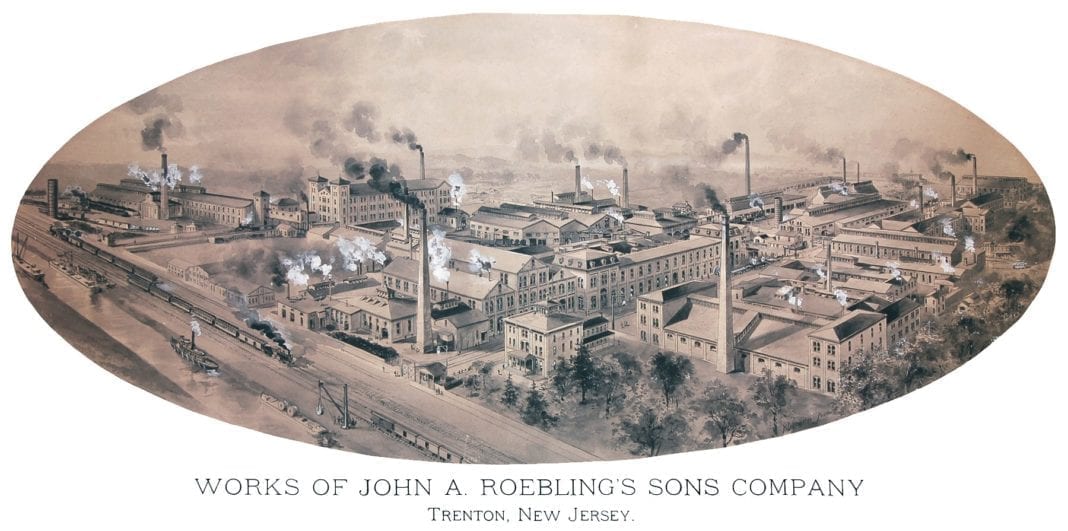War raged across Europe, the German war machine invaded Poland, Japanese planes made their way to a harbor in Hawaii, and America would officially be involved in the second world war. For Historic Trenton’s Day in the Life, we’re looking back through newspapers from the beginning and examining everyday problems, solutions, and needs during historic Trenton’s past. Today we look back to Roebling Wireworks’ involvement During World War II.
In 1941, according to the Trenton Times, Albert W Hawkes, president of The Chamber of Commerce of the United States, made a message of greeting to the Roebling factory. “Today’s wars are won or lost in the country’s machine shops, factories, and shipyards. The fact remains unalterable that industry and business must perform a most important and vital part in this war and America’s Destiny,” Hawkes said in 1941 at the 100th anniversary of Roebling.
Roebling took the call to action and began to bring contracts to help the war effort. The Courier Post writes in the article, Roebling exhibit examines wartime efforts, “but during the war, the company became a defense contractor, manufacturing wire used for a myriad of military purposes — from the tiny rings used to open parachutes, to anti-torpedo and submarine nets, to steel for the Alligator, an amphibious, tank-like beach landing vehicle.”
Roebling became one of the US’ top employers, producing aircraft control wire for bomber planes and steel for anti-submarine nets (including a massive one protecting New York Harbor). The Roebling Company produced millions of dollars worth of defense supplies. According to The Roebling Story booklet, in the Roebling plants at Roebling and Trenton, production was stepped up far beyond the normal to supply a great diversity of products among them: Harbor defense nets; Air Traffic Control, Power and Light Cables; Field Signal Wire; Telephone and Telegraph Wire, Materials for tanks, and Wire Slings for lifting guns, among just a few of the materials made to support the war effort.”
However, that wasn’t the only use for Roebling’s as they continued to strive; on top of funding the war effort, they maintained work at home. “Wire rope, for instance, is used in the marine markets for rigging, as tiller control, for mooring and towing purposes, and as a hoisting medium for loading cargo. In the vital mining industries, it is used on shaft hoists and inclined planes, stripping and excavating equipment, and for many towing and lifting purposes,” writes The Roebling Story booklet.
The World War II contracts the mill acquired brought employment up to over 5,000, according to http://www.sitesofnj.com. That would be short-lived as compared to the entire life of the mill. In the 1950s, with the war over, the mill started to downsize. Next week, we will focus on the end of Roebling.





